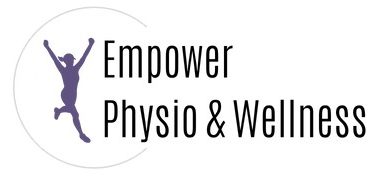You know that feeling. Maybe it feels like clenching or tightness right away, or maybe you don’t realize it until you finally sit down at night. Sometimes it’s even accompanied by a headache–double whammy! Or maybe you realize it in the morning when you wake up and wonder why your jaw already feels tight. You haven’t even done anything yet except become conscious! If you’re wondering how to relieve jaw tension, I’ve got you.
Regardless of the cause, jaw tightness, clenching, and pain are all too common. Usually, it’s something people mention to me in passing, not realizing that there are things they can do to alleviate it. But before we get to that part, let me explain why the heck your jaw gets so tight.
Causes of jaw tightness
There are several reasons why you may clench your jaw and feel that tightness radiate throughout your face and head. To keep it simple, the two main culprits are muscle compensation and emotional stress.
Have you ever been in the middle of a hard workout when the instructor says, “Breathe and relax your face!” You finally take a breath, relax a bit, and feel your jaw start to melt, even though you didn’t know it was tight? There’s actually a reason why that happens. When we exert ourselves physically and our muscles start to get tired, our bodies try to find stability wherever they can.
Oftentimes, that means we tighten the jaw to try and get more stability in the core and spine. Repeat this process over and over, even without being consciously aware of it, and over time the jaw feels tight and tense.
Now, let’s talk about stress. The jaw is an extremely emotional part of the body, especially in women, meaning that you tend to hold stress in the jaw and muscles that surround it. Stress and emotional trauma can literally be stored and held in muscles, making them tight, tense, and painful. So what can you do about it?
How to relieve jaw tension
If you’re thinking, “Yes, this is me,” I have good news for you. There are many things that can help release that tension from your jaw. Here are my top 4 tips:
1. Get in touch with body scans. A body scan involves taking only 30 seconds to pause what you’re doing and bring awareness to a specific part of your body. Take note of any tension you’re feeling, especially in your jaw, and then make a conscious effort to relax it. The act of bringing awareness to your body and what you’re feeling is extremely helpful in the process of releasing tension. I recommend setting an alarm or reminder because it’s most effective when you do this 5-7 times a day. This is also a great time to practice belly breathing, which will help release the jaw!
2. Move your tongue. A quick trick to release the jaw while you’re working out is to place your tongue on the roof of your mouth. It is pretty magical in getting your jaw and face to relax!
3. Get a night guard. This is especially helpful if you grind your teeth at night or wake up with your jaw feeling tight. You can get one at your local drugstore or get a custom one through your dentist.
4. See a physical therapist. PT can work wonders for helping relieve jaw tightness. My favorite way is to perform dry needling on the muscles around the jaw. I know needles near the face can sound scary but it’s super effective and all my clients who have done it say it isn’t so bad and are grateful they tried it! Dry needling is most effective when combined with breathing exercises and mobility drills to keep the tension from coming back. This is all prescribed on an individualized basis, depending on what is best for you as a unique human.
Have questions? We would love to help you with how to relieve jaw tightness and pain. Request a call here to see how we can help.



